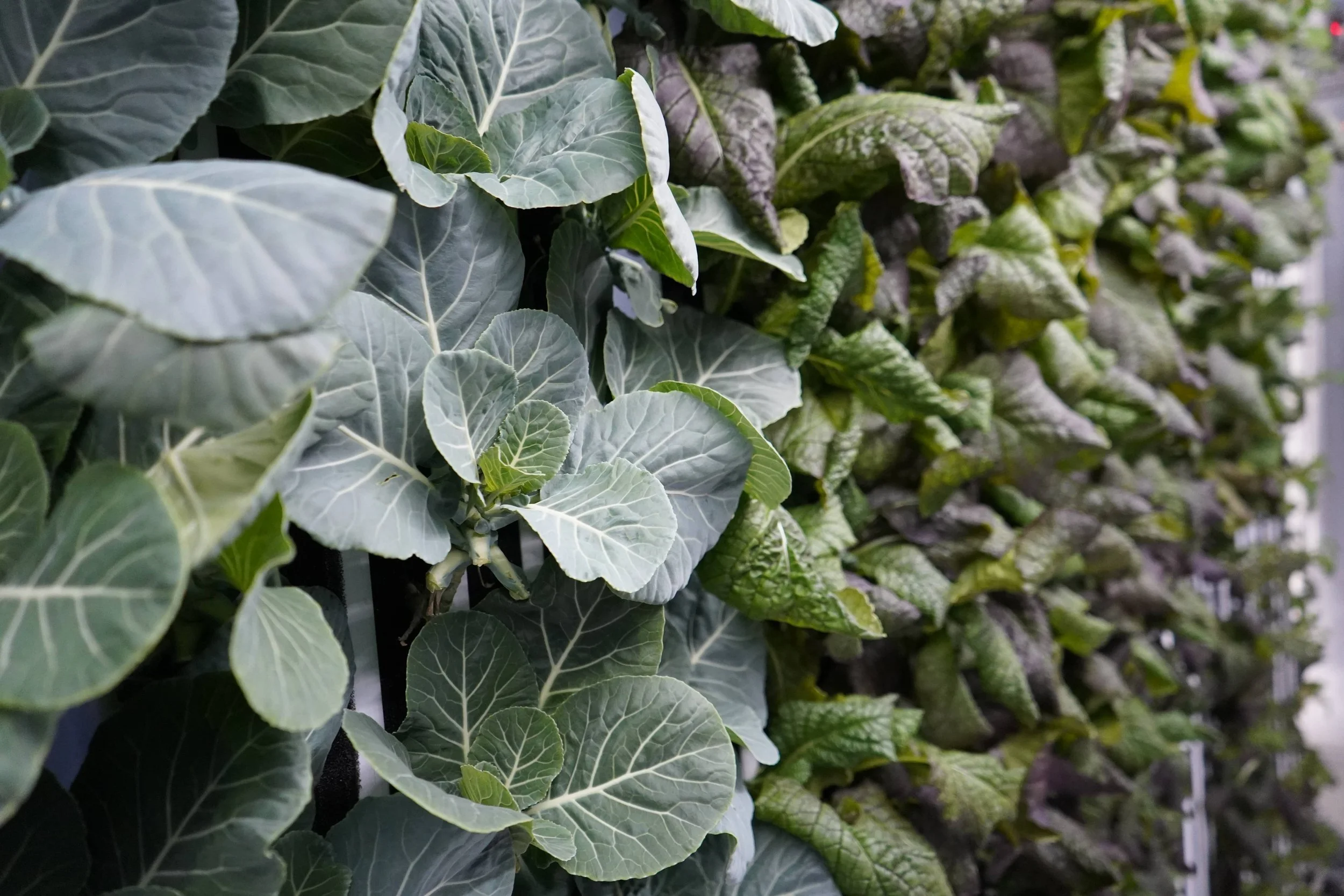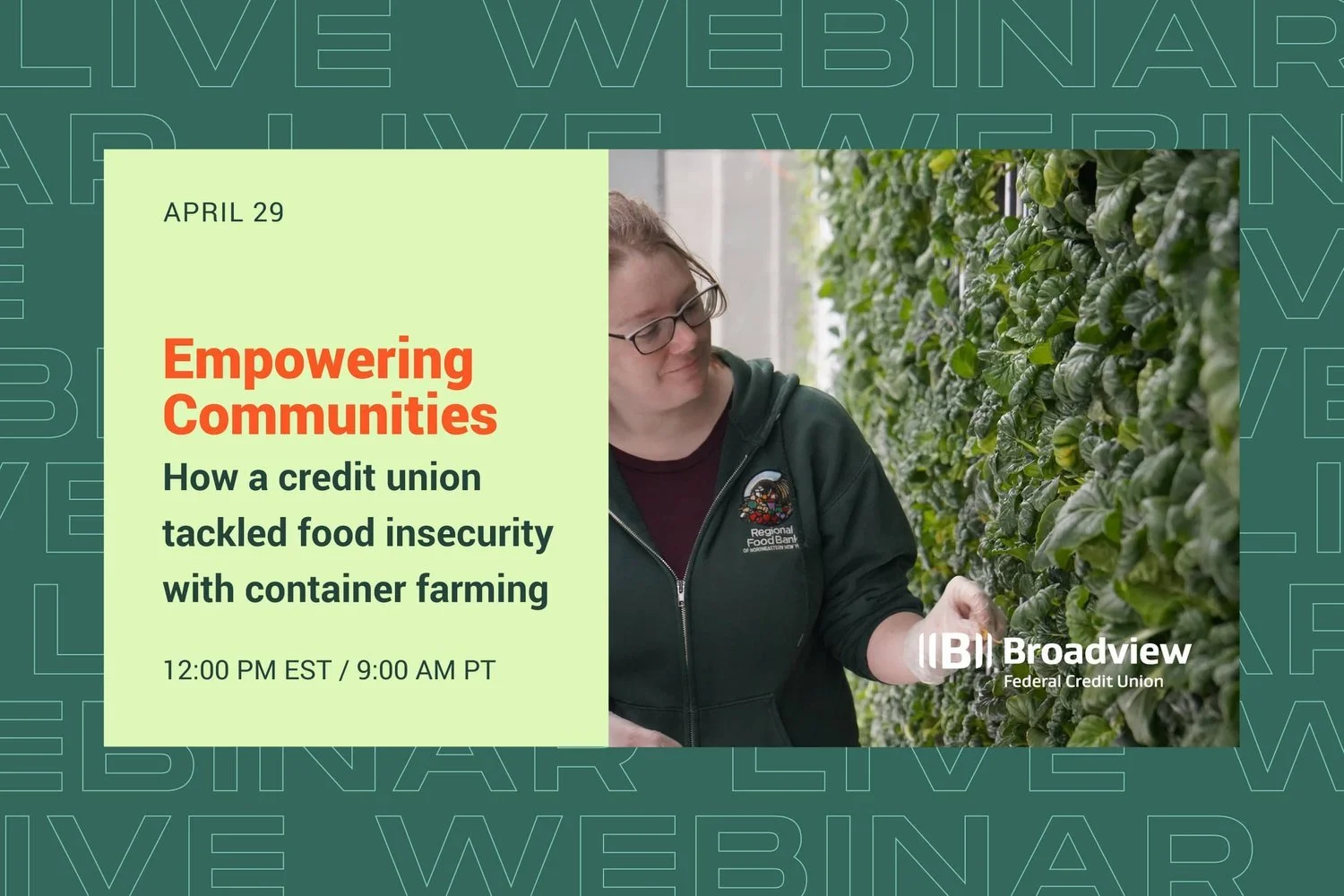Regional Food Bank of Northeastern New York
Latham, New York | EST. 2023
The Regional Food Bank of Northeastern New York has tackled food insecurity with the addition of an on-site Freight Farm, providing fresh, culturally relevant produce to communities in need while reducing reliance on inconsistent donations.
About the Regional Food Bank of Northeastern New York:
Freight Farmer
Business Model
Main Crops
Farm Model
Number of Farms
Overview
The work at the Regional Food Bank of Northeastern New York is multifaceted, but their mission remains clear: to alleviate hunger and reduce food waste.
This organization plays a critical role in delivering nutritious and affordable food to those lacking access in 23 counties. The food bank receives many donations, which are distributed through a network of over 1,000 charitable partner agencies to deliver food where it’s needed most.
The addition of an on-site Freight Farm has further empowered the food bank to meet the cultural preferences of its community while ensuring that the individuals who rely on the food bank’s services can also receive the highest-quality and most nutrient-dense produce available.
Initial Challenges
The food bank supports 23 counties from the Canadian border to Rockland County, just north of New York City. In this territory, 1 in 10 people, including 1 in 7 children, face food insecurity.
Sourcing culturally diverse, fresh produce has always presented a significant challenge due to the food bank's reliance on donors and seasonal limitations.
The food bank’s biggest challenges to serving their communities were:
Lack of control over their supply
Sourcing culturally relevant food
Supplying fresh, high-quality produce
Lack of control over their supply
The food bank is at the mercy of its donors regarding what food they can get and when they can get it. Although they work with many fresh and frozen distribution centers, they don’t always have a say in what food items they receive.
The organization also operates a traditional 160-acre farm, of which they till 30 to 40 acres, where they can somewhat control the fresh produce they offer. However, during drought and winter months, control over the farm is minimal.
Over the years, they’ve experienced shortened growing seasons for various reasons. Excessive rain has prevented a second planting, early winter months have cut short their window for growing fresh food, and they've even lost entire blocks of produce—thousands of lettuce heads—to deer overnight.
Sourcing culturally relevant food
Culturally relevant produce looks different in every community they serve. The food bank collaborates with over 1,000 charitable partner agencies and has a dedicated programmatic team that stays closely connected with the local residents. By gathering data on community needs and preferences, the food bank can identify and try to provide specific items.
Supplying fresh, high-quality produce
The food bank struggled to secure fresh, nutrient-dense food for its community. Seasonal limitations, lengthy supply chain routes, and inconsistent donations often meant the produce it was able to distribute was just a few days away from going bad.
Implementation
Broadview Federal Credit Union, a community leader in Albany, NY, invited several food bank team members to visit their Freight Farm at Broadview’s headquarters. Broadview, interested in donating a Freight Farm to the food bank, wanted the organization to see how a container farm works and explore how they could integrate one into their operations.
Broadview gifted a new container farm to the food bank in December 2022, but due to obstacles with zoning regulations, the farm wasn’t delivered until August 2023.
Zoning hurdles extended the delivery process, as their local township classified the Freight Farm as a storage unit, which was not allowed under existing regulations. However, the local board accepted the food bank’s meeting request to let them explain what the Freight Farm was, how it fit their mission, and how it would support their community. The zoning board ultimately approved it through a building permit, classifying the farm as an accessory building structure.
Once approved, the farm was delivered and placed in the food bank’s parking lot. Liz Gifford, the Director of Green Energy at the Regional Food Bank of Northeastern New York, manages the farm and utilizes volunteerism for support.
The food bank includes the Freight Farm in their tours, allowing visitors to explore hydroponic farming and understand its impact on the community.
Results
The Freight Farm has enabled the food bank to grow a wide variety of fresh, culturally relevant produce that was previously limited or unavailable in their area.
Previously reliant on donations, the food bank now has the autonomy to grow the produce they require. Today, they’re consistently producing collards, mustard greens, and tatsoi to meet the cultural preferences of their communities. Being able to distribute produce within 24 hours of harvest has ensured that communities in need can receive the freshest and highest-quality produce possible. Now, instead of distributing older food items, the food bank is providing produce that surpasses what's typically available for purchase at a grocery store.
“I think the potential is huge for other food banks to utilize Freight Farming. I know of at least 2 other food banks that I’ve visited that have Freight Farms and it’s working and it’s effective. Anytime I have the opportunity to talk about it, I give a thumbs-up recommendation.”
— Nick Pisani, Chief Operating Officer at the Regional Food Bank of Northeastern New York
Conclusion
Broadview's generosity in donating a Freight Farm to the food bank has not only tackled food insecurity but also cultivated a shift toward greater health within their community.
The Freight Farm has provided another avenue to address community gaps in a thoughtful, nutritious, and impactful way. The farm has empowered the food bank to grow items often requested by those in need but rarely donated. Instead of merely distributing old food, they are now delivering the right food, at the right time, and to the right place.
Want to learn more?
Watch our webinar recording, which features Broadview Federal Credit Union and one of its nonprofit partners, the Regional Food Bank of Northeastern New York, to dive deeper into their Freight Farming journey.




